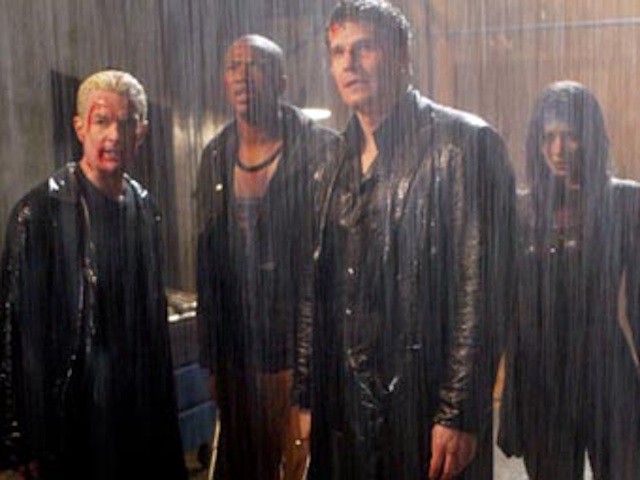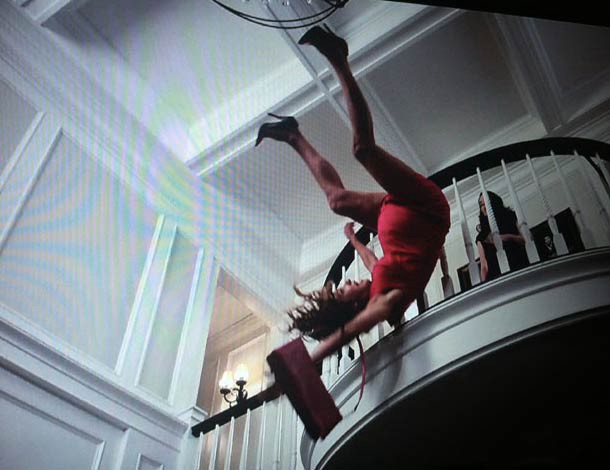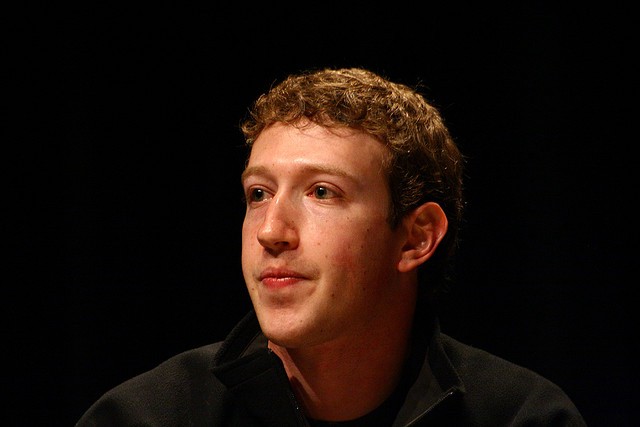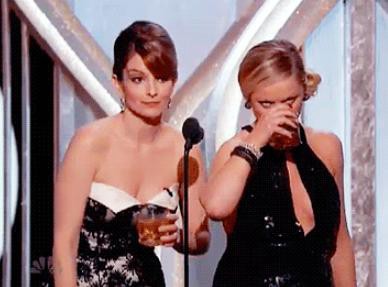Lady Freed
Old news, it turns out, but Joyce Wadler has taken the New York Times buyout and will be unleashed upon the world, at last, leaping beyond the stuffy walls of, oh God, this metaphor is going to hell, let’s just say she walked out into the cool refreshing light of a freelance morning. (No?) In any event she will continue to write the “Misinformed” column for the Times.
Santigold, "Girls"
So what do you think about the new season of Lena Dunham’s “Girls” on HBO? Or what Dunham said at the Golden Globe awards the other night after she won two awards for the show’s first season? Just kidding! Let’s none of us ever talk about Lena Dunham ever again. But you know what’s great fun? This new Santigold video. I’m 99 percent sure I know the lady who lip syncs the opening lines of the rap. She lives on the Lower East Side, where I used to live, and she walks around with a woman who looks to be her sister, both of them dressed on the kooky side of fabulous. She looks cold. But check out those shades!
The Theatrical Torsos Of Yesteryear
“A theater review on Monday about a revival of the William Inge play ‘Picnic,’ at the American Airlines Theater, misidentified the actor whose torso was featured when the play opened on Broadway 60 years ago. It was Ralph Meeker’s, not Paul Newman’s. “
Do You Want To Hear Good Music or Fight About Experimental Fiction?
A magical day in NYC you can see from the calendar, here, I will lay it out for you. But you can get crazy with Heidi Julavits or you can get crazy with Morrissey, it’s all up to you.
The Theology Of "Angel" In The City Of Demons

The first in a series about our favorite TV shows past.
There are some things I know to be true that cannot be objectively or scientifically proven, what theologians call articles of faith. Corporate lawyers, for instance, are not simply bad people who made poor life choices. They actually work for demons, a kind of lesser god-monster from a parallel dimension porously paired with our own. Professional politics, a career nearly all attorneys aspire to, is itself a realm of slightly higher demons — higher in influence and power, not intellect or evolution. These professions, like those of talent agents and film producers and record-label executives and school principals, are natural choices for the unnatural entity and those who aspire to such an existence. These fields afford power and privilege to the person without talent beyond the brute force of personality and a lack of human morals.
Most of all, the earthly working world of the demon provides endless opportunity to hurt people, to degrade and debase humanity, to wear down the weak and strip hope from those who need it most. It’s not just “being mean,” and it’s not out of anger or despondency. It’s the life function of the demon, and it is done calmly, with something similar to a smile. The demonic beings will turn on each other without hesitation, too. It doesn’t matter if they worked closely with the other monster for thousands of years. It’s like the fable of the frog carrying the scorpion across the stream, but they’re all scorpions.
While I’ve spent decades studying and occasionally practicing religions that appealed to me, I don’t much believe any of them. The theology of the television series “Angel” is different, in that you think you’re only watching a spinoff of “Buffy the Vampire Slayer,” but then you realize it’s an accurate reflection of reality. A religion usually starts off telling you it’s true, and then goes about trying to convince you with this or that story or rule. Also, the realm of “Angel” differs significantly from modern Christianity or Judaism or Hinduism or Voodoo or the pagan-infused Catholicism of Ireland or Eastern Orthodoxy of the Balkans, because the realm of “Angel” is essentially Gnostic. Our world is a black iron prison ruled by cruel alien monsters, while a distant Powers That Be are separated from us by an immense gulf of space, time, understanding and several hundred thousand years of inbreeding with the demons who prowl our world.
The character of Angel is a 250-year-old Irish vampire who was hit by a Romany curse in 1898 — the curse returned his human soul, forcing him to live forever in remorse for all the terrible murders he committed as a blood-sucking demon. Standard vampire lore. There is also something about how he can’t let himself experience the euphoria of True Love, so he must skulk around as moodily as possible, forever. It is this “my vampire boyfriend” part of the tale that is least interesting, and also hugely lucrative in the guise of the Twilight franchise. But in “Angel,” the series that ran from 1999 to 2004, what’s important is the Man Alone In A Soulless City. As a story, it’s Raymond Chandler’s lonesome private eye in the wicked sprawl of Los Angeles. And by setting the series in what was then still the unloved east side of Los Angeles — Skid Row, downtown, East Hollywood — Angel’s nocturnal adventures brought a look to L.A. that was as shadowy and hopeless as Chinatown through window blinds or Philip Marlowe’s dead-end existential investigations. The gloomy Bartok-esque gypsy violin that opened each episode was a necessary reminder that this wasn’t the high-school sun-blasted suburban California world of Buffy’s Sunnydale. This city was bummed out from the beginning.
Throughout, the villains are from the Gnostic canon. The rulers of the city (and, through branch offices, the rulers of the entire world) operate through an immensely powerful corporate law firm called Wolfram & Hart. The “senior partners” are ancient interdimensional demons. The venal attorneys are, for the most part, humans. The enemy is both Them and Us, best illustrated by the plight of Angel himself. Even with his soul, he can be an intolerable jerk. But he is a little bit better than the full-time Evil Ones. And that’s about as good as it’s going to get for us, on Earth, for now.
“Our firm has always been here in one form or another,” the lawyer Holland Manners explains in the second season. “The Inquisition, the Khmer Rouge — we were here the first time a caveman clubbed his neighbor and watched in fascination as his brains oozed out in the dirt. We’re in the hearts and minds of every living human being […] The world doesn’t work in spite of evil, Angel. It works with us. It works because of us.”
The itinerant teacher Yeshua told his handful of followers in Roman-occupied Judea and Palestine that to beat back the evil in this world, they must give all they have to the poor and follow him without concern for tomorrow’s meal. When persecuted by their human oppressors, they should suffer the violence with dignity and even love. When challenged to do something, they should instead “become passers-by.” It is no wonder the global church built around the sayings of Jesus has nothing to do with the sayings of Jesus: His teachings are impossible to follow while taking part in the affairs of the world. You must turn on your mother and father, leave your home and community, seek humiliation, and constantly do the opposite of what humans do to survive. And your reward for this, according to Jesus, is not some heavenly paradise with streets paved in gold and cherubs strumming lyres. Your reward is simply what you might someday discern right in front of you, the earthly paradise hidden within nature and yourself.
In the Gospel of Thomas, Jesus says, “The Kingdom is inside of you, and it is outside of you. When you come to know yourselves, then you will become known, and you will realize that it is you who are the sons of the living Father. But if you will not know yourselves, you dwell in poverty and it is you who are that poverty.” And just when you begin to make sense of that, he gives you a lot of funny talk like Zen koans or Nasruddin riddles: “Blessed is the lion which becomes man when consumed by man; and cursed is the man whom the lion consumes, and the lion becomes man.” What?
For several hundred years after Jesus preached his baffling gospel, people struggled to make sense of the sayings. Before St. Paul’s invented theology became the template for the Roman church and any congregation with a New Testament today, the range of belief in the Jesus Movement was immense, and it was primarily Gnostic, which is to say it was a philosopher’s philosophy like that of Plato or the Buddha. The ultimate answer would be found by thinking about it, meditating upon it, and you would know the answer when you know the answer. The problem with such gnosis is that it’s hard to get a crowd to rally around that, especially a congregation that could support a church. So more elaborate Gnostic ontologies were dredged up from the same well that produced the Egyptian animal-human hybrids, the Persian demons and the half-divine evil alien giants who impregnated the Homo erectus women of Genesis (or dropped the Black Monolith) and created modern humanity.
The reason we have such a hard time reaching God and then becoming gods, said these proponents of the Demiurge theology of a dumb and semi-hostile creator god, is because of the Archons serving this Demiurge, this blind deity who has convinced himself he is actually the real godhead and not just an unholy trinity of senior partners at an evil law firm. In this belief system, the creator of a blog network believes he has created everything that is being blogged about. The Old Testament god is just this kind of deranged idiot, micro-managing every aspect of his nomadic goat-herder tribe’s sex lives and daily movements across the deserts while claiming to have also invented an entire universe he can’t even begin to comprehend. But he learns, over time, and he learns from us.
Archons stand between us and eventual freedom. Because we are also infected with the blood of the Archons, there is no way to be completely free of them until we cause the destruction of the Demiurge through gnosis and action, which may or may not be spurred by the true Powers That Be, which are probably manifest in the Vast Active Living Intelligence System of Philip K. Dick’s VALIS, or the 750 megabytes of data within the double-helix strands of our still mysterious DNA.
In Hellenized Gnosticism, the seven mythological Archons were given the names of the primary human vices, or seven deadly sins. They are our demons, within and without us. That the hero of Angel is himself a demon — a human-archon hybrid who feasts upon the blood of mankind but with the gnosis of the Romany curse to show him another path — is essential to the story and the theology. None of us are pure, not least the venal collection of humanity and hybrid who come to assist Angel in his pro bono private-dick business.
Eventually, the purest heart of this resistance would belong to a full-blooded demon from another dimension. It is the character of the horned, green-skinned karaoke host from a distant world, Lorne, who proves to be the best human of them all. It is a sad kind of Jungian synchronicity that the actor himself, Andy Hallett, died of heart disease that began with a dental infection within weeks of shooting the last episode of “Angel.” But these things go both ways; Joss Whedon conceived the character of Lorne after he saw Hallett singing karaoke at the Universal CityWalk. Hallett was a charming and talented amateur singer but not yet an actor; his day job at the time was that of personal assistant for Whedon’s wife, Kai Cole. Many of the weekly victims and the show’s primary heroine are lonely actors who migrated to Hollywood and found nothing but dead-end jobs and crushed dreams. A first season regular who played Angel’s Irish-Demon hybrid partner, Glenn Quinn, was fired for unreliability caused by his drug addiction. He died on a friend’s couch in North Hollywood three years later.
Do you need to believe in actual, literal demons to enjoy the rich mythology of “Angel”? No more than you need to believe in the reality of the gods our presidents and terrorists pledge allegiance to. The theories of the evolutionary psychologist Julian Jaynes — that our species’ conception of gods and the resulting religions were the result of the startling development of human consciousness that began with a schism in the brain — are more convincing than any theology, including attempts to force currently observed phenomena (whether supposed extraterrestrial visitors or quantum mechanics or both) into ancient religious traditions, or vice versa.
For all that, it is demonstrably true that artists frequently stumble upon crucial realities in the process of creation, and that the act of creation itself goes a long way toward forming an explicable container for the inexplicable. In this way, Carl Jung was both “wrong” to correlate 1940s-1950s UFO sightings with mandalas, and completely correct to link them in modern thought. (By the early 2000s, a popular television miniseries produced by Steven Spielberg would portray all UFOs as the very mandalas Jung connected to the phenomenon. In this way, it begins to form a higher truth. It becomes real.)
It is also Jung who best explained magic as a true force of will. “Nowadays we are not threatened by elemental catastrophes,” Jung says in The World Within. “There’s no such thing as an H bomb. That is all man’s doing. We are the great danger. What if something goes wrong with the psyche? It is demonstrated to us in our days, the power of the psyche of man. And yet we know nothing about it.”
An idea, even the strangest fantasy, is to Jung “a form of energy.” The man who invented rocketry, Hermann Oberth, did so because as a child in the first years of the 20th century, he was enthralled with Jules Verne’s science-fiction tales of rocketry. Hand in hand, the creators of the greatest destruction and the greatest leaps plunder fantasy to create reality. Homo erectus learns to use tools, and tries them out on his fellow ape-man. It works. And one day, we can hope, we will defeat the demons that are partly us and move beyond the blind creator god who will always create with one hand and kill with the other. It is a deeply internal theology, because the enemy is not just the legion of demons. It is also us, and only by recognizing it can we hope to defeat it.
This is how Angel ends, at least how the existing five seasons of the television series end: The Senior Partners turn over the whole law firm to Angel and his confederates. The hope is that power will corrupt, as it has so reliably done throughout human history. But it is also reliable that someone always stands up, somewhere, and whether they win or lose that particular battle, they make it okay to be on the right side of that particular issue. Slavery, environmental destruction, crimes against women and children, the slaughter of innocents, all began as the norm, the birthright of the hybrid human monsters who did evil things. And then, because people imagine a moral alternative, those things become wrong. Gnosticism can be a weary pursuit, as gloomy as Angel’s world of forever-night Los Angeles full of lonely people and the monsters who prey upon them. But the ultimate goal of gnostic theology is liberation.
You can watch the whole series on Netflix, but don’t be surprised if you start to see the world in a new light. The question is what you’ll do after experiencing this gnosis.
Amherst, Massachusetts, to New York City, January 13, 2013

★ The old snow on the ground and the mist off the snow joined and blended with fresh fog, a curtain of daguerreotype white drawn all around. On the north side of the common, the snow cover was fraying around the edges, exposing matted grass and scattered dark-red twigs. Holiday decorations were emerging, once-festive seedpods gone wet and rotten under their gold paint. One quaint restaurant after another solidified into view, none of them open for breakfast. Elderly Yankees stalked by in near silhouette, lumpy and beflapped with fleece and assorted layering pieces. Dampness pressed in around the tall-standing house of the poet. Why would one leave one’s room, really, in this horizonless winter? Three days of this white and gray had made it seem possible that the mists were an enchantment around the little archaic town — but now on the road out, the fog lay too over the Chili’s and the Courtyard by Marriott, thick and mundane. Now, briefly, there was a yellow glow to it, testimony that the sun still existed; now even the highway signs overhead were unreadable. Sometimes the gray was paler than the trunks of the birches and sometimes it was darker. Between rock outcroppings, it deepened to the color of thunderclouds, and then off beyond the railings of an elevated stretch of road — a bridge? a viaduct? — it glared bright white. It lifted a little, as the miles went by, and lowered again. The windshield got smeary. The top half of downtown Springfield was missing. In Hartford, all but the tips of the buildings were showing. But then Bridgeport was obliterated. Within striking distance of the city, in the confusion, a wooded parkway led deeper back into Connecticut, the last thing anyone wanted. An off-ramp and an on-ramp in the green dimness, a little weight on the Mazda’s accelerator, and there was the right road, opening out soon enough toward the high bulk of Manhattan, the immense and innocent spaciousness of the city, where only the faintest of drizzles was falling.
Victoria Grayson's Unfortunate History As A Hamptons Hostess, In Chronological Order

• Last night’s Charity Wine Auction: Two guests kidnapped from elevator as they’re leaving the party.
• Liberty Project benefit dinner: Wife of a Supreme Court nominee reveals to assembled guests that her husband beats her, is crooked judge.
• Thanksgiving dinner: Victoria discloses to guests that at age 15 she was forced to shoot a man and take the blame for his death.
• Second wedding to Conrad: Groom toted off by police during the reception.
• Baby shower: Pregnant guest of honor goes over staircase railing.
• Fire + Ice engagement party: Party marred by discovery of dead body on the beach outside, son wandering around, bloody and dazed, near the corpse. Also tacky invitations.
• Birthday clambake for son: Son’s gun-toting psychopathic ex-college roommate enters with the birthday cake.
• Holds invalid houseguest captive in her home.
• Her and Conrad’s 25th wedding anniversary dinner party: Five guests, all of whom have stormed off or excused themselves from the table before end of first course.
• Mother-daughter charity luncheon: Luncheon of Hampton ladies is halted when a video is played with clips of highly fraught moments from everyone’s therapy sessions: “How can I explain to my husband that I slept with his sister!”
• Fundraiser for Senator Tom Kingsly: As the senator is starting his speech, his pregnant mistress shows up, and senator abruptly announces his “retirement from public life.”
• Memorial Day charity art auction: Sells Van Gogh given to her by her best friend, exiles best friend from the Hamptons forever.
(Inspiration hat tip.)
The Other Other White Meat
“A gang of swan killers are being hunted by police amid fears the birds are being stolen to eat.”
Is It Finally The Beginning Of The End For Facebook?

Do you remember where you were when MySpace lost its spot as the top social network? Where were you when Plastic died? There are early signs today that Facebook, used by many and loved by few, is beginning its inevitable decline. In Britain, where the drunken populace spends an inordinate amount of time staring at their phones, Facebook lost 600,000 users last month. That’s not quite 2% of the U.K. user base, but it’s also the opposite of “growth.”
The data chimes with speculation that Facebook is reaching saturation point among the web user population in its core markets, and that continued growth is increasingly dependent on the developing world.
What will be next? What do the children use? Wouldn’t it be nice to have “a place for friends” without the constant buzzkill of your co-workers and spouses’ friends and your actual relatives? Does anybody even get “friend requests” in 2013, or have we reached Peak Friends? Is it possible that Earth could survive without a dominant social network that a billion people feel the need to check daily, despite hating it? Please “like” this on Facebook and join the conversation, with your mom.
Photo by Jason McELweenie.
Blergh: A Golden Globes Wrap-up

I just got done watching the Golden Globes show on TV, and that’s fun, to sit there with some bacon & horseradish dip and say shitty things about people who are famous. Also to make fun of the clothes these celebrities wear, mostly the women, because the men generally look the same, but if you put ’em on a sliding scale and concentrate, you can make proportionately weighted fun of the men for managing to look not quite right in a tuxedo because they couldn’t just go ahead and wear a regular tux like all the other guys, they hadda stand out, so they show up in a bad bowtie or weird shirt-collar, or one of those weird cuts with nonconforming lapels or maybe tails that look like they are from the future/past. The one thing any dude can wear and look good in, and some of these freaks can’t manage it. That’s Entertainment. We, the People, the Consumo-Pawns of the Entertainment Industrial Complex, are fully authorized and entitled to hate these people on our television screens during Awards Season, because, thanks to the benefit of our mass-dollars, we fund the movie screens and the TV they exist in. We own them.
Meanwhile, even with all the money we give them, these Hollywood weirdos need to think they are better than us and, deeper still, to remind us of this with their every perfect-toothed smile or unnatural skin tone glisten. These Award shows are carefully designed so people in the Entertainment Industry can congratulate each other publicly on one of them in each category being better than the others, and then they get all actor-choked up while they are reminding themselves in front of us about how great their jobs are and how what they do is important, and if they thank any civilians for whatever real people in the real world do for a living, it’s only because they made a movie or TV show about some real-life thing, so they are simply congratulating themselves yet again for being better than everybody who can’t make a movie or TV show about something they would never want to do in a million years because it’s not movies or TV.
This Argo movie is a perfect example. Hollywood is giving itself an award for a movie about how the idea of Hollywood saved some people who were trapped in Iran. This flick is a stone-cold lock for the Academy Award, man, get your money up if you think you know better and I will bet you, seriously, unless that’s illegal, to bet in my column. I don’t want to get anybody in trouble over a whole bunch of stuff that is as essentially meaningless as movies and TV. I mean, I love movies and TV, but I don’t take it seriously the way They (the Hollywood Foreign Press) want you to.
I mean, look at Jodie Foster, man, holy crap, she made a speech, that if it was anywhere else but at an award show for a buncha phoney-baloney Hollywood alcoholics and drug addicts, that speech would get her put in a padded cell, I think. She might even be in a padded cell right now, I wouldn’t be surprised. This speech Jodi Foster made will push the whole Al Roker pants-pooping incident right off the top level of the Internet until Lance Armstrong cries like a baby during that interview with Oprah that he’s doing so he can be Lance Armstrong again. Jodi Foster was at the Golden Globes award show to be awarded the Cecil B. Demille Lifetime Award for Outstanding Achievement in Excellence or whatever, but would Cecil B. Demille be up there on a stage telling people he wanted a date? What the hell is the matter with Jodi Foster? And Mel Gibson was sitting at her table looking like he was on powerful anticonvulsant medications, did you see that guy? And Jodie Foster is lecturing America about Privacy while we are viewing her children on TV watching clips of that time she played a teenage prostitute, while she’s up there blabbering like an auctioneer about being lonely or something. Entirely too much information, man. This was on par with watching one of those abused-animals commercials, you know? Meanwhile, Lena Dunham, who got a prize for her show “Girls” on the Home Box, even if she wore shoes she couldn’t walk in, at least she wrote her speech down ahead of time, and she wasn’t even sure she was going to win a prize, you know? She needs somebody to help her pick better outfits for these award shows.
I think I got a stomach ache watching Jodie Foster’s speech, I’m not kidding, it wasn’t the bacon-horseradish dip. I thought her head was gonna split open from that disturbing forced smile she employs to punctuate her remarks. I know she’s been under a lotta pressure in her life with that kook who shot the President because he wanted to be her boyfriend, which may or may not be on account of how she was in a movie about a kook who wanted to shoot the President or whatever. All I wanted to do was make fun of people wearing ill-fitting costumes and getting sloppy drunk on the Foreign Press and now I’m getting an ice-cream headache thinking about the hall of mirrors in my brain reflecting upon the career of Jodi Foster. She made a lot of good movies, though, and it was smart not to do that Silence of the Lambs sequel. I even thought Panic Room was pretty good.
Previously: Be Your Own Year
Mr. Wrong can converse with you via many medias.
